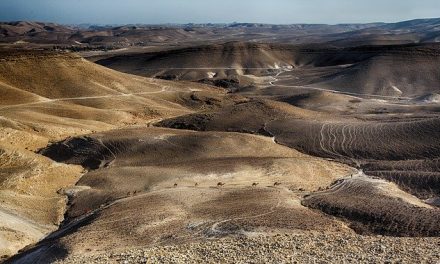The Book of Numbers “are the commands and ordinances the LORD commanded the Israelites through Moses in the plains of Moab by the Jordan across from Jericho” (Num 36:13). The “plains of Moab by the Jordan across from Jericho” meant that they had finally arrived right at the border of the Promised Land and were about to enter.
This was the story of their journey, the commands and ordinances they were to follow once they came into the land. Because when they took the land, the people would start to settle and scatter. Therefore they needed to iron some things out prior to entry into the land.
But here their story, their journey and the commands and ordinances are mixed together in three parts:
- Preparing for their Journey (Num 1:1-10:10)
- The Journey to Moab (10:11-21:20)
- Their arrival in Moab and Preparations to Enter the Promised Land (21:21-36:13)
What We Learn from Part 1: Their Preparations (1:1-10:10)
– God desires organization and not just chaos. The Israelites were numbered and organized appropriately
– Community health and hygiene matter to God. There were definitive ways to handle clean and unclean situations
– There were some things given to some and not to others. This was not an issue of superiority but responsibility. And as per their responsibility, a violation was held in much more severe consequence.
– Only blood could atone for sin
– Those who have been wronged should be compensated for it
– Leaders bear the greater responsibility and therefore were to bring the greater, more costly sacrifice.
– The Lord guides in His timing
– Key events where God has moved should be remembered and celebrated (i.e. the Passover)
What We Learn from Part 2: The Journey (10:11-21:20)
– To get to the promises of God often requires genuine hardships, but complaining instead of seeking God arouses His anger
– The Lord is faithful to keep his promises
– God has chosen some to be the leadership. It is no small thing to rebel or complain against the Lord’s anointed
– We must see with the eyes of faith in the things that God has promised
– Fear should not lead us but rather faith.
– Beware that your fear does not become contagious and stop the purposes of God in others
– The people who minister before God should be adequately provided for in the tithe/the tenth
– Those around dead bodies should cleanse themselves
– Even leaders are not above the discipline of God. In fact, their discipline because they work in front of people and their influence is greater is sometimes more difficult
– Sometimes God allows plagues as judgment (although not all plagues are judgment)
What We Learn from Part 3: The Arrival in Moab (21:21-36:13)
– Food and Sex are stumbling blocks even for God’s people, but these stumbling blocks bring about the judgment of God
– When a people are blessed, God causes even their enemies to bless them
– Land is holy to God
– We are to remember our special days and offerings
-We must obey God in whole, not in part
– Sin defiles the land
– God cares for the land and the settling of its people
Summary
From the beginning the Lord lead the Israelites. He led them with miraculous provision and special care. Yes, they faced immense hardship, but if they turned to Him there were supernatural solutions. And if they didn’t turn to him but complained and rebelled, there were outbreaks against this people who were consecrated to Him.
It was hard for the Israelites to accept that some were chosen to be leaders and others not. It oftentimes meant rebellion. But it was the Lord who chose the leaders and the Lord stood to protect them.
God was serious about His Word. Those who rebelled against it faced consequences. The Lord had to teach the people that he meant what he said.
Food, sex and fear were often problems for the Israelites. These were the quickest and easiest ways to cause the people of God to stumble. Lack of food they enjoyed, sexual boundaries and scary situations that required faith showed what was in the heart of the people. Oftentimes unfortunately it showed the people had no respect for seasons of suffering, sexual limitations, or the invitation to believe God for the next miracle.
Anger towards leaders, not taking God seriously, walking in repentance and righteouesness and more were also issues. These things the people of God took casually but God himself held in great importance.
In some ways not much has changed. The same issues persist and the same issues show what is really in our hearts. Will the Son of Man find faith when he returns? It’s oftentimes only suffering and hard times that will tell us what’s really in our hearts.






